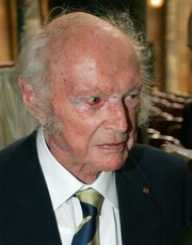Rolf Harrer, a name that echoes through the corridors of history, stands as a testament to the profound impact one individual can have on the world. His life, intertwined with that of his father Heinrich Harrer, a renowned Austrian mountaineer and geographer, is a narrative rich with adventure, cultural exchange, and personal growth. Through the lens of history, Rolf emerges not just as a son but as a pivotal figure whose existence shaped the decisions and journeys of those around him. The legacy of Rolf Harrer extends beyond familial ties; it delves into the realms of cultural diplomacy and understanding. His story, often overshadowed by the illustrious achievements of his father, offers a unique perspective on the complexities of identity and belonging. As we explore the life and influence of Rolf Harrer, we uncover a tale of resilience and adaptation, set against the backdrop of significant historical events and personal challenges.
In the cinematic portrayal of Seven Years in Tibet, Rolf's presence looms large, even in his absence, influencing the choices and reflections of Heinrich Harrer. This film, among other sources, provides insight into the dynamics between father and son, highlighting the emotional and philosophical journeys they embarked upon. The following exploration delves deeper into the multifaceted life of Rolf Harrer, revealing the layers of his character and the enduring mark he left on history.
Hidden Correspondence: A Letter Across Mountains
Through the narrative voice of Heinrich Harrer in Seven Years in Tibet, a poignant letter addressed to Rolf Harrer unfolds. This letter, narrated by Heinrich, paints a vivid picture of isolation and longing, capturing the essence of a distant land cloaked in mystery and beauty. It speaks volumes about the internal struggles and reflections of a man far from home, seeking solace in the vastness of Tibet's landscapes.
The imagery of high, snowcapped mountains and the belief systems of the Tibetan people provide a stark contrast to the familiar world left behind. Heinrich's journey through this mystical terrain mirrors his own spiritual quest for purification and redemption. Each step taken towards a holy place represents an effort to cleanse past misdeeds, emphasizing the transformative power of travel and self-discovery.
This correspondence encapsulates the duality of movement and stillness, where despite the passage of time and changing seasons, there remains a constant yearning for connection. Heinrich's words resonate deeply, reflecting the universal themes of identity, purpose, and the search for meaning in a rapidly evolving world.
Journeys Reimagined: Choices and Changes
As the war draws to a close, Heinrich Harrer contemplates returning to Austria, a decision influenced significantly by the reception of a disheartening letter from his son Rolf. This communication, filled with rejection, serves as a catalyst for introspection and reevaluation of priorities. The weight of familial estrangement prompts Heinrich to reconsider his plans, highlighting the intricate balance between personal aspirations and familial obligations.
The character development within this context underscores the complexities of relationships strained by distance and differing perspectives. Rolf's cold letter symbolizes a broader theme of generational disconnect, where the expectations and realities of each party collide, leading to misunderstandings and hurt. This pivotal moment in Heinrich's life exemplifies the challenges faced when attempting to bridge gaps formed over years of separation.
Ultimately, the decision to remain in Tibet signifies more than a geographical choice; it represents a commitment to embrace new cultures and ideologies. This shift in focus illustrates the adaptability required to navigate the uncertainties of post-war life, offering a glimpse into the transformative power of embracing change and the unknown.
Portrayals and Perspectives: On Screen and Beyond
In the cinematic adaptation of Seven Years in Tibet, Rolf Harrer's character is brought to life through the portrayal by Philipp Kriechbaum, alongside notable actors such as Brad Pitt. This visual representation adds depth to the narrative, allowing audiences to connect emotionally with the characters and their respective journeys. The casting choices reflect the importance of authenticity in storytelling, ensuring that each role resonates with the intended message and spirit of the original text.
Beyond the silver screen, Rolf's presence in various accounts and documents further enriches our understanding of his role in history. These sources, including letters and biographical notes, provide additional layers to his character, revealing nuances that might otherwise remain hidden. They underscore the significance of preserving personal narratives as vital components of collective memory.
The interplay between fact and fiction in these portrayals invites viewers and readers alike to engage critically with the material, fostering discussions about the nature of truth and representation in historical narratives. By examining these depictions, we gain a more comprehensive appreciation of Rolf Harrer's contributions and the lasting impact of his life on both personal and global scales.
Legacies Entwined: Father and Son
The relationship between Heinrich Harrer and Rolf Harrer is marked by significant historical milestones, including Heinrich's involvement with the SA and later the Nazi Party. These affiliations, though controversial, are crucial in understanding the broader socio-political context that shaped their lives. The subsequent actions and transformations of Heinrich, particularly his work in promoting Tibetan culture and advocating for human rights, demonstrate a trajectory of growth and redemption.
Rolf's birth during Heinrich's climbing expeditions adds another layer to this complex narrative, illustrating the sacrifices made in pursuit of personal ambitions. The timing of such events highlights the tension between professional endeavors and family responsibilities, a theme recurrent throughout their shared history. Despite these challenges, the bond between father and son persists, albeit fraught with misunderstandings and unspoken emotions.
Ultimately, the legacies of Heinrich and Rolf Harrer intertwine, creating a tapestry of experiences that transcend individual achievements. Their stories serve as reminders of the resilience and adaptability required to navigate the complexities of life, leaving behind a legacy that continues to inspire and educate future generations.

